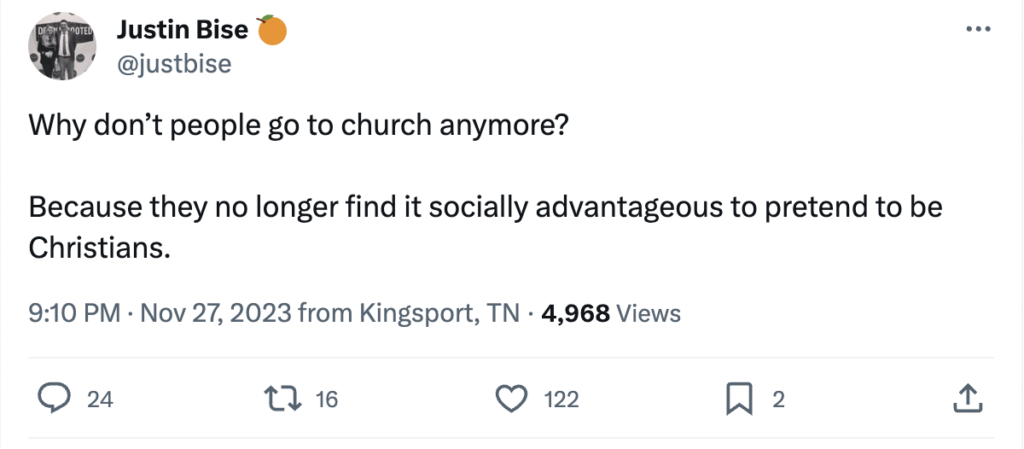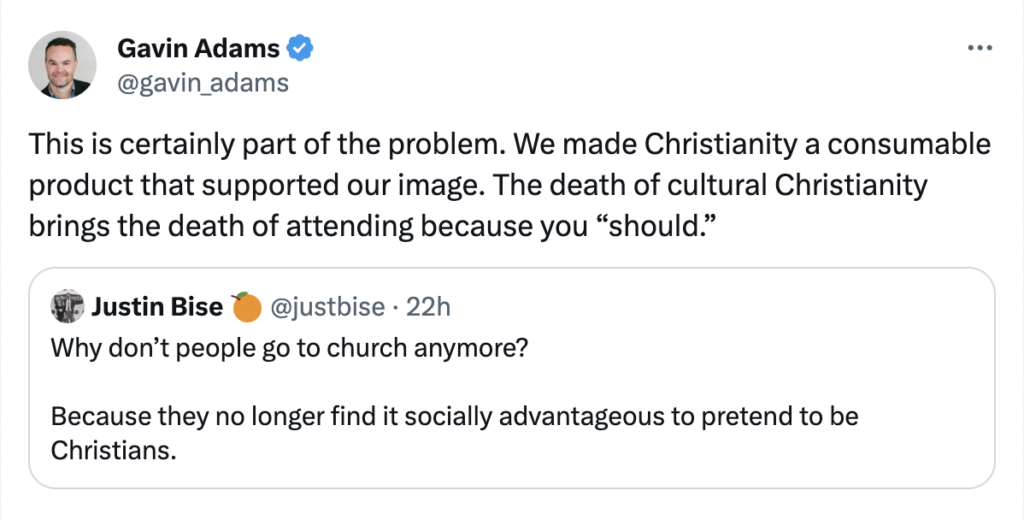I recently came across this Tweet (or X, or whatever we’re calling it now).
I responded with…
I’ve written on and taught pastors, church leaders, and churches about this topic for nearly three years. I’ve focused primarily on adjusting our discipleship and engagement pathways in light of cultural Christianity’s death.
But I love how Justin put it: People “no longer find it socially advantageous to pretend” any longer.
The Social Advantages of Church Attendance
I assume this is not a new issue. Yet, it is a rampant issue that’s grown exponentially in the past few years (or decades).
Churches have placated the consumeristic tendencies of their communities for quite some time. And this approach worked on several fronts. Consumable Christianity attracted people and led many to Jesus. This “attractional” approach filled church buildings and small groups. But this methodology also fueled poor behaviors and expectations of Jesus, the church, and pastors.
As the saying goes, “What you win people with, you win them to.”
Not a New Problem, Though
I guess this is comforting: Jesus faced this same issue. We read multiple accounts of Jesus experiencing frustration with crowds due to their consumeristic desires for food, healing, or a miracle. Hence, his “eat my flesh and drink my blood” crowd-thinning sermon.
While we could evaluate how we as churches got here (and throw stones), the better question is, “Where should we go from here?”
Perhaps we should do some “crowd thinning” ourselves. Not to intentionally run people off, but we may need to add a little “eat my flesh” stuff back into the mix.
Maybe We Follow Jesus’ Lead?
Or, as many pastors would say: “Preach the full Gospel.”
The Gospel is the “Good News,” but the Good News is not that Christianity makes life easier. Or that church attendance helps with networking. The “Good News” is that salvation is a free gift through faith that cannot be earned.



